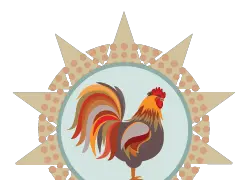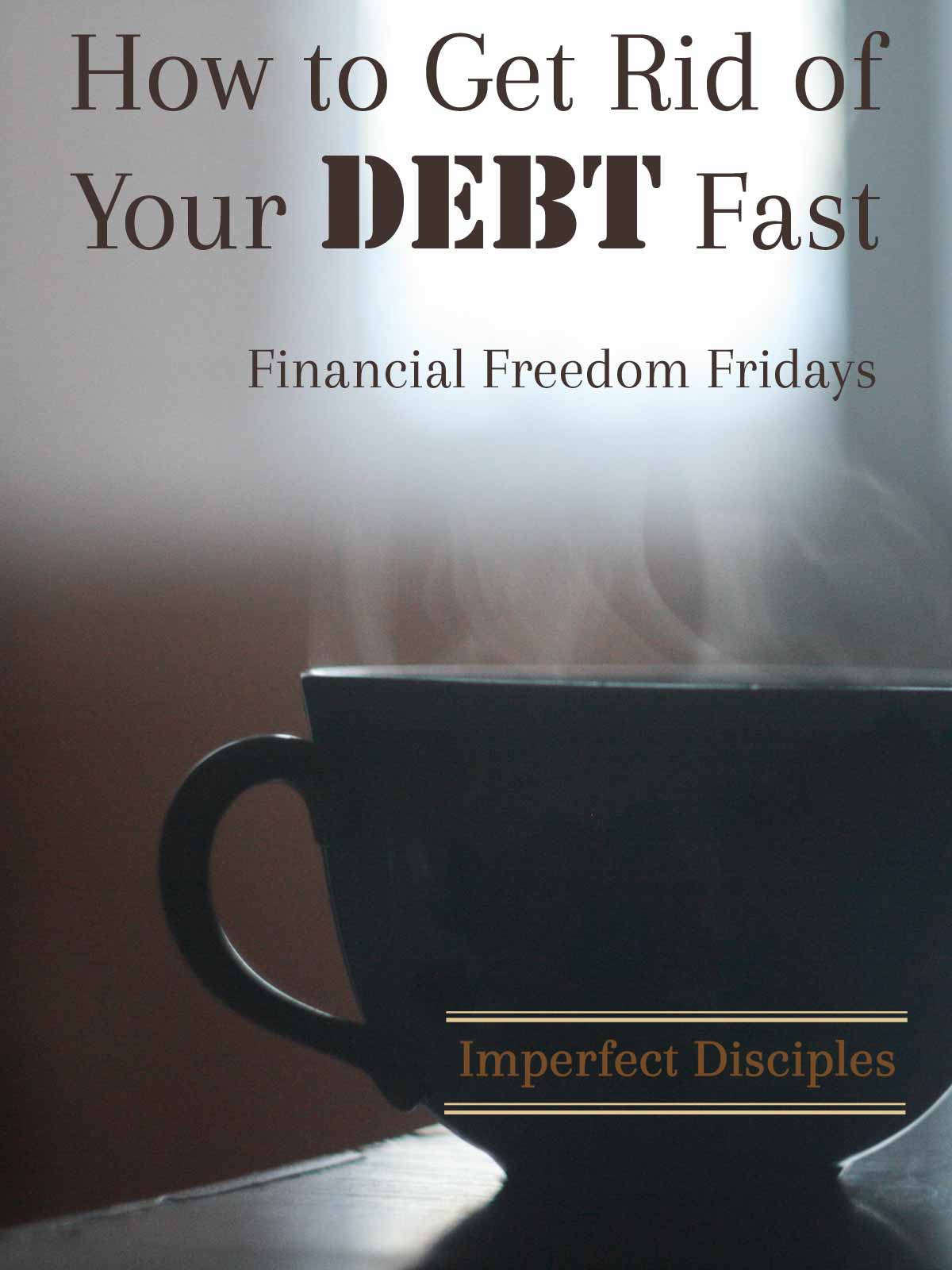Another Friday, another post about financial freedom. Today we’ll discuss why you should avoid debt, and steps you can do to get yourself out of debt as quickly as possible.
Before we get started, I want you to know that this post, as implied in the introduction is part of series of posts we’ve been doing for a little while about achieving financial freedom. Essentially it’s just tips and steps you can take to begin stewarding your money the way God would have you do so. We’ve discussed budgeting, giving and tithing, and other generic tips, but you can find all of our posts about finances on the Finances category page.
So, let’s get on to talking about debt.
What’s So Bad About Debt?
You probably already understand that debt sucks. It’s not hard to figure out, but we still need to cover this because we need to look at debt from a Biblical perspective.
The rich rules over the poor, and the borrower is the slave of the lender.
Proverbs 22:7
Did you realize that you were enslaving yourself to your lenders when you took out those loans or used that credit card? In a very real sense, it’s true. If you aren’t able to pay the money back, they can hurt you pretty bad. I’m no lawyer or debt expert, so I can’t speak to the extents that they can go, but I do know that you won’t be enjoying many things when debt collectors are looking for you. Not to mention the fact that you’re shackled to having to spend a certain part of each of your paychecks toward that debt, which means you’re losing the freedom to spend or save that for something better.
The wicked borrows but does not pay back, but the righteous is generous and gives;
Psalm 37:21
God considers people who do not pay back their debts to be wicked. After all, you’re stealing money that rightfully belongs to the lender, and God has given a commandment specifically against stealing, so it’s pretty obvious that it’s frowned upon. Every time you accept debt, you assume that you will be able to pay it back, but you cannot be certain of what the future holds, so you always put yourself at risk of not being able to pay the debt back, which means you risk sinning. Plus, by taking on debt, you take away some of your ability to give generously, whether that means you’re unable to give as much to your church on a consistent basis or you’re unable to help out a friend who is struggling to make ends meet. Now, don’t take this to mean that you should never accept risk. You can’t do anything without risk of something bad happening, but you should weigh the risks.
For which of you, desiring to build a tower, does not first sit down and count the cost, whether he has enough to complete it?
Luke 14:28
This verse doesn’t specifically talk about debt. Rather it just asks the question, “do you have enough to pay for it”? If the answer is no, that doesn’t mean you should reach for the credit card. Instead, “sit down and count the cost”, take the time to think about it earnestly. Do you really need that thing? If so, do you need it now? I mentioned in the first post for this series that money saved up is worth more than money paid back to lenders, due to interest being in your favor rather than against you.
Now, I confess to you that I have a hard time with these things myself. I have a bit of an addiction to food, so I have a really hard time being on the road for any length of time without stopping at a gas station or fast food restaurant and spending a few bucks, usually with a credit card (before it was removed from my wallet). The biggest problem is that it doesn’t feel terrible because I’m only spending a small amount of money, but it starts to add up rather quickly. Next week I’ll being talking about these “addictions” to spending and trying to put them in their true perspective. For now, though, let’s take a look at the steps you can take to start getting yourself out from the burden of debt right now.
How to Get Rid of Debt
I’m not the expert on this, but I know enough. My wife and I have gone from approximately $60,000 in debt in 2012 to less than $20,000 in 4 years and we’re still doing what we can to stick to getting rid of it. I already admitted that we had issues along the way. Honestly, we could be debt-free right now if we followed these steps perfectly. Also, these aren’t things we came up with on our own. We’ve gone through a course or two and read The Total Money Makeover by Dave Ramsey (highly recommended by us and many friends for any Christian who wants to take better control of their finances) and these are the tips we’ve picked up from those.
- Admit that debt is a problem. If you don’t think that debt is an issue, then you won’t try to get rid of it. It’s just like any other problem in your life. You have to believe it is a problem before you can do anything about it. Commit to not accumulating more debt!
- Fill out a budget worksheet. This is big. You need to know how much money you can throw at your debt so that you don’t end up going in to more debt because it caused you to run out of money in other areas. For right now, just write down the minimum payments on your worksheet until later. Make sure you read the post about budgeting, and also make sure to give God your first-fruits so that you are starting off well.
- Find ways to cut back. Whether this means trying to find cheaper clothes and groceries, or cutting cable, you’re going to want to free your budget from as many responsibilities as possible. Kaylin and I have never had television during our entire marriage, not even bunny-ears. I know some of you may be thinking you can’t live without it, but I want you to really really think about it before you come to that conclusion, and that goes for just about everything. Think long and hard about how much you really need something and whether or not God would approve of the decision. If you’ve been overspending for a while, this can help you get back into the black, and if you’re already in the black, then this will help you create more money that can be used for paying off your debt more quickly, which we’ll be going over soon. The more you can cut back, the faster your debt will be paid off, and the more you’ll have available for spending in the future because you don’t have the debt payments to worry about. Always remember that some sacrifice right now can bring much better gains in the future. Always keep your future in mind, or you’ll end up ruining your future in order to have something now. That is the gist of how all debt works.
- Choose a debt to pay off first. Assuming you have more than one debt account, which most of us do, you’re going to want to choose one of those debts to focus on first. You should either choose the smallest debt you have, or the one with the highest interest rate. It usually doesn’t make much difference, but if you’re not sure what to decide I’ll show you something that can help you decide, because it really depends on the debts that you have. Anyway, this debt is going to be the one that receives all of the money that hasn’t been allocated to other expenses. You’re going to be pushing to pay this one debt off as quickly as possible. And after that debt is paid off…
- “Snowball” your debt payments. Once one of your debts is paid off, take all of the money that was being paid toward the newly paid off debt, and put it toward the next debt in line. Then once that one is paid off take all of that money and add it to the amount you were paying for the next debt, and so on. Keep paying the same total amount toward debt each month, even after some of your debts are paid off. The amount you’re paying toward the focused debt keeps getting larger, though, so the debts continue to get paid off quicker and quicker until, before you know it, all your debt is gone.
So why would you focus all of your extra debt payment money toward one debt rather than spreading it out over all of your debts? The primary reason is actually psychological. The sooner you get one debt paid off, the sooner you’ll feel the sense of accomplishment, the sense that you’re making progress, which will inspire you to continue doing what you’re doing. If it takes you a long time to reach your first debt payoff, you may get discouraged and quit. Obviously it isn’t proven fact that this is how you’ll react to the situations, but I’m sure you’ll appreciate a “quick win”.
The other reason to focus on one debt first really only shows up if you have a debt account with a significantly higher interest rate than the others (generally credit card). The high-interest accounts will end up being more costly than the low-interest accounts if they take a while to pay off. This is the reason some experts say to focus on the account with the highest interest rate first, rather than the account with the lowest balance. If your highest-interest account also has the lowest balance, then your decision gets a lot easier in that regard. 🙂
If you want to determine mathematically which debts to pay off first, then use a snowball calculator that can let you use both methods and see which one has the best results. The one I linked to has a radio button near the top that lets you decide if you want to pay off low balances or high interest rates first, so you can see the results of both.
I would really advise you to read Dave Ramsey’s book, though, because there’s only so much good information you can convey in a blog post. This post is already far longer than most on this blog, and I’ve only touched on debt. Dave Ramsey will, as the book’s title states, give you what you need for a total money makeover and really challenge the way you think about money in light of well-though-out reason and in the light of the Bible.
With that, I’ll wish you farewell. May God bless you on your way to honoring him with your money.

